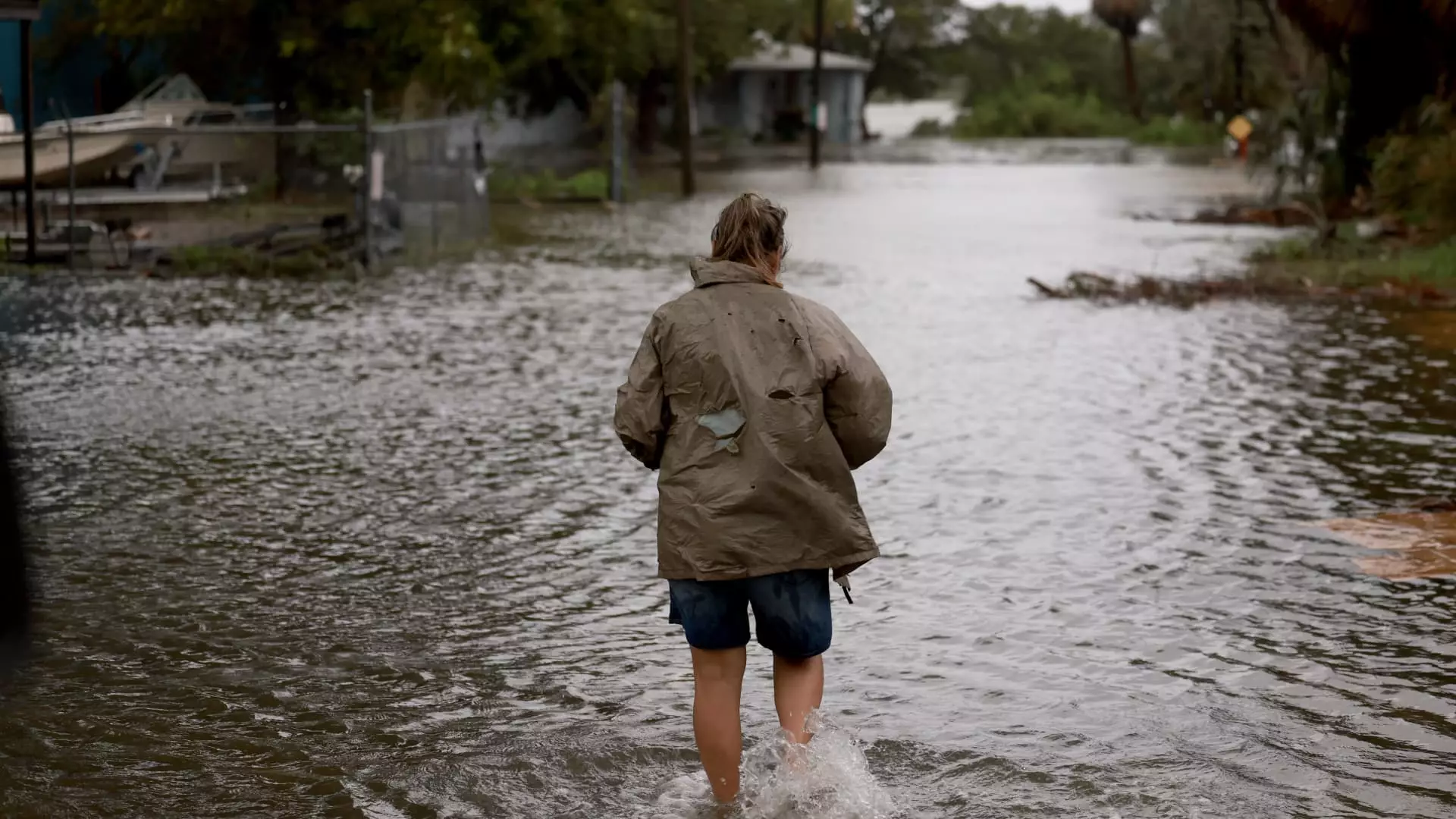Living in states prone to hurricanes can be challenging, especially when it comes to the threat of flooding. Hurricane Debby recently wreaked havoc in the southeastern U.S., leaving homeowners scrambling to deal with the aftermath of heavy rains and flash floods. While many homeowners may have purchased flood insurance to protect their properties, there is a common misconception that this type of insurance covers all damages, especially those to personal property stored in basements.
Peter Kochenburger, an insurance expert, warns that flood insurance policies have limitations, particularly when it comes to basements. Most insurance contracts define a basement more broadly than expected, often including sunken living rooms or other partially underground areas. This definition can catch homeowners off guard when they discover that their flood insurance does not cover damages to personal items stored in these spaces. With climate change fueling more intense storms and flooding incidents, it is crucial for homeowners to understand the limitations of their flood insurance policies.
According to the Federal Emergency Management Agency (FEMA), flooding causes 90% of annual disaster damage in the U.S. Shockingly, just an inch of water can result in approximately $25,000 worth of property damage. To make matters worse, standard homeowners and renters insurance policies do not cover flood damage, leaving consumers vulnerable. With the increasing risk of flooding, it is essential for homeowners to evaluate their insurance coverage and make informed decisions to protect their assets.
The majority of Americans rely on the federal government’s National Flood Insurance Program (NFIP) for flood coverage. However, only about 30% of homes in high-risk flood areas have flood insurance, indicating a significant coverage gap. While FEMA’s policies provide essential protection for structural damage caused by flooding, they fall short when it comes to covering personal property stored in basements. As a result, many homeowners are left exposed to financial losses when floods strike.
FEMA’s flood policies have specific exclusions that limit coverage for items stored in basements. Personal property such as furniture, electronics, and appliances are typically not covered by NFIP policies. Additionally, basement improvements, generators, and certain other items are excluded from coverage. In the event of a flood, homeowners may face substantial losses if their basement items are not adequately insured.
To minimize the risk of financial loss due to flooding, homeowners are advised to understand their insurance coverage and take proactive measures. Peter Kochenburger recommends moving valuable items from basements to higher ground or storage units to protect them from flood damage. Additionally, homeowners should consider adding optional “contents coverage” to their policies to ensure that essential items stored in basements are protected.
As FEMA explores ways to enhance basement coverage for policyholders, it is crucial for homeowners to stay informed about changes in flood insurance policies. With an increasing focus on adapting to climate change and mitigating flood risks, homeowners need to be proactive in managing their insurance coverage. By understanding the limitations of flood insurance, homeowners can make informed decisions to safeguard their homes and personal belongings from the devastating impact of flooding.
While flood insurance provides essential protection against structural damage caused by flooding, there are limitations when it comes to covering personal property stored in basements. Homeowners must be aware of these limitations and take proactive steps to mitigate risks and protect their assets. By understanding the complexities of flood insurance policies and exploring additional coverage options, homeowners can safeguard their financial well-being in the face of natural disasters.

Leave a Reply